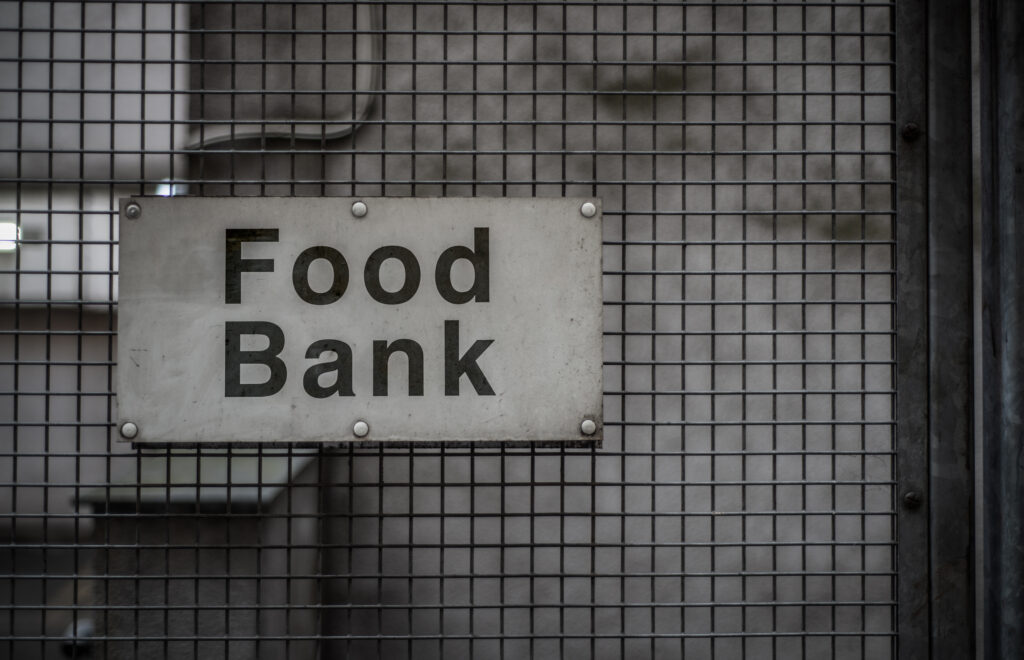The COVID-19 pandemic has unleashed unprecedented challenges across the globe, affecting various sectors of society. Among those significantly impacted are the resilient individuals working in the restaurant industry. As the virus forced widespread closures, restrictions, and shifts in consumer behavior, restaurant workers in Canada found themselves facing a myriad of challenges. From abrupt job losses to financial strain and concerns about personal health, the pandemic has left an indelible mark on the livelihoods of those who bring culinary delights to our tables.
In this tumultuous landscape, the significance of fundraising campaigns emerges as a beacon of hope and support for restaurant workers. Fundraising campaigns play a pivotal role in providing immediate relief, addressing financial hardships, and fostering a sense of community resilience. As we delve into the intricacies of these campaigns, it becomes evident that they serve not only as a financial lifeline but also as a testament to the collective strength and compassion of communities coming together in the face of adversity.

The Plight of Restaurant Workers
As the COVID-19 pandemic unfolded, the once bustling restaurant industry in Canada faced an unparalleled crisis, and at the heart of this crisis were the dedicated individuals who form the backbone of the culinary world – the restaurant workers.
- Job Losses: One of the most immediate and devastating impacts on restaurant workers was the wave of job losses triggered by government-imposed restrictions and closures. With dining establishments forced to shut their doors or operate at limited capacities, many workers found themselves unemployed overnight. The uncertainty surrounding when businesses could reopen compounded the stress and anxiety associated with sudden unemployment.
- Financial Strain: The economic fallout from the pandemic exacerbated financial strain on restaurant workers. Living paycheck to paycheck, many found it challenging to meet basic needs such as rent, utilities, and groceries. The absence of a stable income stream left them vulnerable to financial hardships, pushing some to the brink of poverty.
- Health Concerns: Beyond economic challenges, the health and well-being of restaurant workers became a paramount concern. The nature of their work often involves close contact with others, making them more susceptible to the virus. Fear of infection, coupled with the absence of comprehensive health insurance for some, added an additional layer of stress.

The Role of Fundraising Campaigns
In the face of the immense challenges confronting restaurant workers during the COVID-19 pandemic, fundraising campaigns have emerged as a crucial lifeline and a powerful tool for fostering community support. Fundraising campaigns, at their core, involve organized efforts to collect financial or material contributions from individuals, businesses, and communities to address specific needs or causes. In the context of supporting restaurant workers impacted by the pandemic, these campaigns play a multifaceted role that extends beyond monetary assistance.
- Definition and Explanation: Fundraising campaigns, in the context of supporting restaurant workers, encompass a range of initiatives designed to generate resources and aid for those affected. These campaigns leverage various channels, both digital and traditional, to raise awareness and rally support for the cause. They can take the form of online crowdfunding, charity events, awareness drives, or partnerships with local businesses—all with the overarching goal of providing relief and assistance to restaurant workers facing unprecedented challenges.
- Versatility of Campaigns: What makes fundraising campaigns particularly impactful is their versatility. Monetary donations are a direct and immediate means of addressing financial needs, offering relief to workers grappling with rent, bills, and daily essentials. Food drives and meal initiatives contribute to a more holistic approach, ensuring that those in need have access to nourishing meals during times of hardship. Additionally, community initiatives, such as volunteer programs or skill-building workshops, foster a sense of unity and empowerment among restaurant workers.
Beyond the tangible outcomes, fundraising campaigns serve as a powerful expression of solidarity within communities. They create a platform for individuals, businesses, and organizations to come together with a shared purpose—to support those in the restaurant industry who have been disproportionately affected by the pandemic.
Key Benefits of Fundraising Campaigns
As restaurant workers grapple with the profound impact of the COVID-19 pandemic, fundraising campaigns emerge as a beacon of hope, offering a range of benefits that extend far beyond the immediate relief of financial burdens.
- Financial Support for Workers: At the forefront of the benefits lies the crucial aspect of financial assistance. Fundraising campaigns provide a lifeline for restaurant workers facing unemployment or experiencing a significant reduction in income due to closures and restrictions. Monetary contributions from these campaigns help bridge the gap between lost wages and essential expenses, offering stability during times of economic uncertainty. Whether through direct financial aid or targeted support programs, these campaigns ensure that the basic needs of workers are met, alleviating the stress associated with financial insecurity.
- Assistance in Covering Healthcare Expenses: The pandemic has underscored the importance of health and well-being, and fundraising campaigns play a pivotal role in addressing the healthcare needs of restaurant workers. Contributions may be directed towards covering medical expenses, facilitating access to healthcare services, or even providing mental health support. By mitigating the financial barriers to healthcare, these campaigns contribute to the overall resilience and recovery of the restaurant workforce, ensuring that individuals can prioritize their well-being during these challenging times.
- Ensuring Access to Resources: Beyond financial aid, fundraising campaigns have the power to ensure access to essential resources for restaurant workers. This includes support for obtaining groceries, hygiene products, and other daily necessities. By addressing immediate needs, these campaigns enable workers to navigate the challenges posed by the pandemic with dignity and a sense of security. Access to resources becomes a fundamental component of the holistic support that fundraising campaigns can provide, reinforcing the idea that no one in the community is left behind.
- Building a Sense of Community and Solidarity: Perhaps one of the most intangible yet impactful benefits of fundraising campaigns is the cultivation of a sense of community and solidarity. As individuals and organizations come together to support their fellow community members, a powerful message of unity resonates. Restaurant workers, often facing isolation due to the nature of their work, find solace and strength in knowing that they are not alone. This communal spirit fosters a collective resilience that extends beyond the immediate challenges, creating a lasting network of support.

How Individuals Can Contribute
In the collective effort to support restaurant workers through fundraising campaigns, individuals play a pivotal role in making a meaningful impact. Here are practical steps for individuals to get involved, offering a range of ways to contribute and show solidarity with those affected by the challenges of the pandemic.
Online Donations:
- Explore established fundraising platforms dedicated to supporting restaurant workers or broader community relief efforts.\
- Contribute a one-time donation or consider setting up a recurring contribution to provide sustained support over time.
- Research local organizations or initiatives that align with your values and goals for making a positive impact.
Volunteerism:
- Connect with local charities, food banks, or community organizations organizing events or initiatives to support restaurant workers.
- Offer your time and skills to volunteer at food distribution centers, community kitchens, or events aimed at providing direct assistance.
- Collaborate with organizations that focus on skill-building or educational programs to empower workers for future opportunities.
Community Initiatives:
- Explore opportunities to initiate or participate in community-driven campaigns, such as neighborhood food drives or fundraising events.
- Collaborate with local businesses to organize events that bring the community together, with proceeds directed towards supporting restaurant workers.
- Engage with local community leaders to identify specific needs and gaps that fundraising campaigns can address.
Social Media Advocacy:
- Leverage the power of social media to amplify the reach of fundraising campaigns.
- Share information about ongoing campaigns, donation links, and success stories to raise awareness among your online network.
- Utilize relevant hashtags and encourage others to join the cause, creating a ripple effect of support across social platforms.
Workplace and Professional Networks:
- Advocate for workplace initiatives that support fundraising campaigns, such as company-sponsored donation drives or matching programs.
- Engage professional networks to raise awareness about the challenges faced by restaurant workers and encourage collective action.
- Collaborate with colleagues to organize virtual events, webinars, or panel discussions to educate others about the importance of supporting the industry.
DIY Fundraising:
- Take the initiative to organize your own fundraising activities, whether it’s a virtual event, a charity run, or a creative project.
- Use personal skills or hobbies to create products or services for sale, with proceeds directed towards supporting restaurant workers.
- Engage friends, family, and colleagues to join your personal fundraising efforts, fostering a sense of shared responsibility.
Challenges and Solutions
While fundraising campaigns are powerful tools for supporting restaurant workers affected by the pandemic, organizers often face challenges that require strategic solutions and thoughtful planning. Recognizing these challenges and implementing effective solutions is crucial for the success and sustainability of campaigns aimed at making a positive impact on the lives of those in need.
- Challenge: Lack of Visibility and Awareness
– Solution: Prioritize a robust marketing and communication strategy. Utilize social media, local news outlets, and community bulletin boards to spread the word. Collaborate with influencers, community leaders, and local businesses to amplify the campaign’s reach.
- Challenge: Donor Fatigue
– Solution: Diversify fundraising efforts to maintain engagement. Consider organizing different types of events, collaborating with multiple organizations, or rotating campaign themes. Highlight the tangible impact of donations and keep supporters informed about the progress and outcomes of the campaign.
- Challenge: Limited Resources
– Solution: Maximize the impact of available resources by focusing on cost-effective strategies. Leverage volunteer support, collaborate with local businesses for in-kind donations, and explore partnerships with other community organizations. Prioritize efficiency and creativity to achieve more with fewer resources.
- Challenge: Overcoming Skepticism
– Solution: Be transparent about the campaign’s objectives, goals, and the intended use of funds. Share success stories and testimonials from previous campaigns to build trust. Provide regular updates on the progress of the campaign to assure donors that their contributions are making a meaningful impact.
- Challenge: Competition with Other Causes
– Solution: Differentiate the campaign by highlighting its unique aspects and the specific needs it addresses. Collaborate with other organizations or causes to create joint campaigns that benefit multiple communities. Clearly articulate the urgency and significance of supporting restaurant workers during these challenging times.
- Challenge: Digital Literacy Barriers
– Solution: Ensure accessibility for all potential donors by providing multiple ways to contribute. Simplify online donation processes, offer alternative methods such as text-to-give options, and provide clear instructions for those less familiar with digital platforms. Consider local outreach efforts for those who may not have easy access to online resources.
- Challenge: Maintaining Momentum
– Solution: Develop a sustainable plan for ongoing engagement. Create a content calendar for consistent communication, organize periodic events or updates, and celebrate milestones to keep supporters motivated. Establish long-term partnerships with local businesses or organizations to ensure continued support.
- Challenge: Adapting to Changing Circumstances
– Solution: Build flexibility into the campaign plan to adapt to unforeseen circumstances. Have contingency plans in place for events, fundraising goals, and communication strategies. Stay informed about the evolving needs of restaurant workers and be ready to pivot the campaign focus accordingly.
Collaborations and Partnerships
In the realm of fundraising campaigns aimed at supporting restaurant workers impacted by the coronavirus crisis, the power of collaboration and partnerships cannot be overstated. The success of these initiatives hinges on the synergy created by bringing together diverse stakeholders, each contributing their unique strengths to the collective effort.
- Collaboration with Restaurants:
- Restaurants, being at the heart of the cause, can play a pivotal role in fundraising campaigns. By partnering with local eateries, campaigns can leverage their existing networks, customer base, and community influence.
- Collaborative efforts may involve organizing charity nights, where a percentage of restaurant sales contribute to the fundraising cause. Restaurants can also engage in in-kind contributions, such as providing meals for events or offering discounts to campaign supporters.
- Involvement of Local Businesses:
- Local businesses form a crucial part of the community ecosystem and can significantly amplify the impact of fundraising campaigns. Collaborating with businesses enables campaigns to tap into additional resources, sponsorships, and promotional support.
- Businesses may contribute not only financially but also by providing goods or services for fundraising events. Partnerships with local businesses can enhance the visibility of the campaign, fostering a sense of community support.
- Engagement with Community Organizations:
- Community organizations, including non-profits and grassroots initiatives, are essential allies in the fight to support restaurant workers. By aligning with these organizations, campaigns can tap into their expertise, resources, and established relationships within the community.
- Collaborating with community organizations may involve joint events, shared resources, or co-hosting workshops and support programs. This collaborative approach ensures a holistic and inclusive response to the challenges faced by restaurant workers.
- Government and Policy Advocacy:
- Engaging with local government agencies and policymakers is crucial for creating systemic change and addressing the broader issues impacting the restaurant industry. Collaborative efforts can involve advocating for policies that support workers’ rights, fair wages, and access to healthcare.
- Campaigns can work alongside policymakers to highlight the needs of the industry and propose solutions that contribute to the long-term well-being of restaurant workers. Building strong relationships with government stakeholders strengthens the advocacy for systemic change.
- Media and Influencer Partnerships:
- Collaboration with media outlets and influencers enhances the reach and visibility of fundraising campaigns. Media partnerships can secure coverage, interviews, and features, bringing the campaign to a broader audience.
- Influencers, whether local or online, can use their platforms to endorse the campaign, share personal stories, and encourage their followers to contribute. Their influence can significantly impact the success of the campaign by mobilizing a wider audience.
- Educational Institutions and Training Centers:
- Collaborating with educational institutions and training centers creates opportunities for skill-building and future employment for restaurant workers. Partnerships can involve organizing workshops, mentorship programs, or scholarship initiatives.
- By fostering relationships with educational institutions, campaigns contribute not only to immediate relief but also to the long-term resilience and professional development of workers within the industry.
Future Outlook
As fundraising campaigns continue to play a pivotal role in supporting restaurant workers impacted by the coronavirus, the long-term benefits of sustained support become increasingly apparent. Looking beyond immediate relief, these campaigns have the potential to contribute to the resilience and revitalization of the entire restaurant industry. Here’s a glimpse into the future outlook shaped by ongoing and sustained support through fundraising initiatives:
- Strengthening Community Bonds: Sustained support through fundraising campaigns fosters a sense of community and solidarity. As individuals, businesses, and organizations consistently contribute to the cause, a lasting network of support emerges. This interconnected community becomes a source of strength, resilience, and mutual aid, extending well beyond the immediate challenges of the pandemic.
- Cultivating Industry Resilience: The resilience of the restaurant industry is intricately tied to the well-being of its workforce. Continued fundraising efforts contribute to the industry’s ability to weather unforeseen challenges, creating a safety net for workers and businesses alike. This resilience is not just reactive but proactive, as campaigns address systemic issues, advocate for worker rights, and contribute to the establishment of a more robust and equitable industry.
- Empowering Workers for the Future: Sustained support allows for the implementation of programs that empower restaurant workers for the future. Skill-building initiatives, educational opportunities, and mentorship programs can be sustained, creating avenues for professional growth and career development. By investing in the capabilities of the workforce, fundraising campaigns contribute to a more adaptable and skilled restaurant industry.
- Advancing Industry Innovation: The ongoing support provided by fundraising campaigns enables the restaurant industry to innovate and adapt to changing circumstances. Whether through the adoption of new technologies, sustainable practices, or creative business models, sustained support fosters an environment where businesses can evolve and thrive. This adaptability is crucial for the industry’s long-term viability.
- Fostering a Culture of Giving: Continued fundraising efforts contribute to the establishment of a lasting culture of giving within the restaurant industry and the broader community. As campaigns become ingrained in the fabric of the industry, a sense of shared responsibility for the well-being of its members permeates. This cultural shift fosters an environment where support for one another is not just a response to crises but an ongoing commitment.
- Addressing Systemic Challenges: Sustained support through fundraising campaigns provides an opportunity to address systemic challenges within the restaurant industry. Advocacy for fair wages, improved working conditions, and access to healthcare becomes a focal point of long-term campaigns. By influencing policy changes and industry practices, campaigns contribute to a more equitable and sustainable future for restaurant workers.
- Creating a Legacy of Resilience: The legacy of sustained support through fundraising campaigns becomes a testament to the resilience of the restaurant industry. The stories of overcoming challenges, the impact on individual lives, and the collective strength of the community create a lasting narrative that inspires future generations. This legacy becomes a foundation upon which the industry can continue to build and thrive.
Conclusion
As we unite to support restaurant workers through fundraising campaigns, Werbylo stands as a beacon, offering a powerful tool to amplify your impact. Werbylo, a free software tailored for creating fundraising campaigns for nonprofits, empowers you to make a tangible difference in the lives of those affected by the pandemic.
Why Choose Werbylo?
- User-Friendly Platform: Werbylo provides an intuitive and user-friendly platform, ensuring that setting up and managing your fundraising campaign is a seamless experience.
- Cost-Free Solutions: In the spirit of community support, Werbylo offers its services at no cost. This means that every dollar raised goes directly to the cause you’re passionate about – supporting restaurant workers in their time of need.
- Customizable Campaigns: Tailor your campaign to tell a compelling story. Werbylo allows you to personalize your fundraising efforts, making it easy to connect with your audience and inspire them to contribute.
- Secure and Trustworthy: Trust is paramount in fundraising. Werbylo employs robust security measures to ensure the safety of all transactions, providing peace of mind to both organizers and donors.
In the spirit of solidarity, Werbylo invites you to join the movement of compassionate individuals and organizations making a difference. Start your fundraising campaign today, and together, let’s create a brighter future for restaurant workers. Every click, every share, and every donation contributes to a collective effort that transcends challenges and builds a legacy of support.
Visit Werbylo and embark on a journey of impact, resilience, and community-driven change. Together, let’s turn compassion into action and make a lasting difference for those who need it most. Sign up now.




